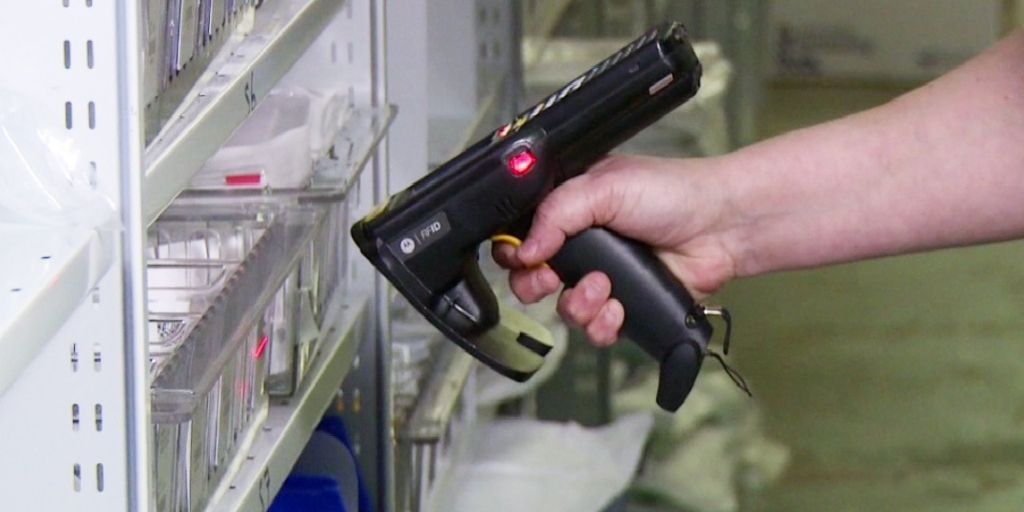
Pioneering radio frequency identification (RFID) theatre kitting technology, which streamlines the management of theatre supplies, could help reduce the elective surgery backlog caused by COVID-19.
The pandemic continues to have a severe effect on waiting lists for elective surgery in the UK and RFiD Discovery, the UK’s leading location tracking specialist for healthcare, say its pioneering integrated ‘theatre kitting’ solution can help to relieve some of the pressure.
In any acute hospital, preparing materials for scheduled and emergency procedures takes up a lot of clinical time. RFiD Discovery – part of Paragon ID, a global leader in identification solutions – have introduced a “Gold Standard” material management solution enabling theatre consumables to be delivered to the point of use.
The technology allows theatre teams to have the correct equipment at their fingertips, helping to improve efficiency and quality of care.
Traditionally clinical staff in the local theatre areas are responsible for preparing all inventory required for the next day’s operations. On top of being time-consuming, this can dilute the skills and knowledge available in a particular theatre, thus compromising patient safety.
RFiD Discovery’s pioneering ‘theatre kitting’ solution allows this process to be centralised so that clinical staff are freed up to spend more time on patient care. It also reduces the risk of picking incorrect products or having insufficient supply of key items readily available. By improving efficiency, the technology can also bring important cost savings to hospitals, as well as helping to reduce waste – ultimately allowing hospitals to be as “lean” as possible.
Simon Dawkins, lead RFID consultant at RFiD Discovery, explains: “Working in an operating theatre can be pretty stressful and challenging, – meeting the needs of patients, the demands of surgeons and facing the limits of time itself. With the present situation of staff shortages across the NHS, there has never been a more crucial time than now to allow clinical staff to focus on their job, and more importantly, improve patient care and safety. Our transformational service is designed to do just that.”
The RFiD Discovery theatre inventory management system is designed to track items used for operations with passive RFID labels. Clinical staff curate a custom list of required equipment for specific types of operations, which is captured on the system and used to create the procedure kits. The actual packing of equipment is carried out by a central kitting team.
Central kitting staff download the relevant list for each type of operation to an RFiD Discovery handheld scanning device which indicates which location in the central store each item can be picked from. Items are then scanned and added to a tote box specific for each patient. To reduce waste, kits only include the items that are normally needed during an operation.
Unless all items required have been picked and scanned, the system automatically prevents the completion of the tote. This improves patient safety by ensuring that all the correct items are to hand when needed. Post operation the tote box is received back in the central store where the RFID labels are then scanned by the inventory team. This means all consumables used can be accounted for, so that an accurate overall material cost of each operation is recorded and stock correctly replenished. Furthermore, any unused items are placed back on the shelves for future use.
The technology has already been successfully implemented at one of the largest hospitals in the UK – where it has been instrumental in freeing up time for clinical staff, optimising stock holding and minimising waste. Theatre kitting processes are now used for all of the trust’s theatres. Due to reducing waste and the number of items used for each operation, the hospital has also been able to reduce the per-case cost.
There are currently over 5.5 million people in England waiting for treatment or non-urgent surgery, with the Institute for Fiscal Studies (IFS) warning it could rise to 14m by the end of 2022.[1] Technology has been instrumental in tackling the challenges of COVID-19. The government has also pegged the use of new technology and innovative ways of working as a key driving force to help the NHS to tackle growing waiting lists and treat around 30% more patients who need elective care by 2023 to 2024.[2]
[1] https://ifs.org.uk/publications/15557
[2] https://www.gov.uk/government/news/innovation-and-new-technology-to-help-reduce-nhs-waiting-lists












